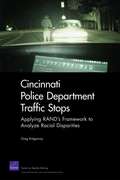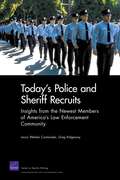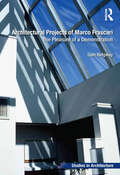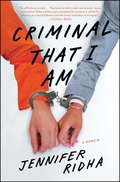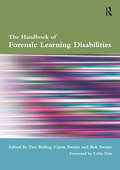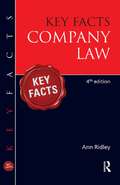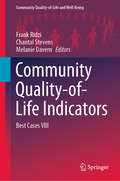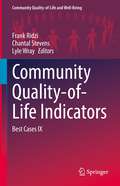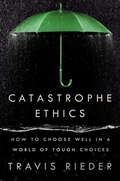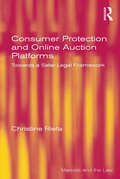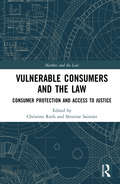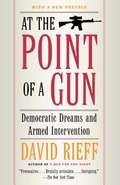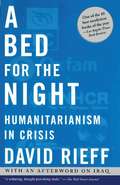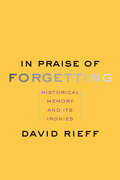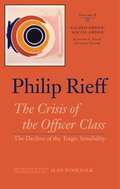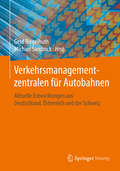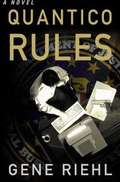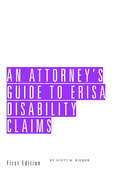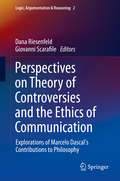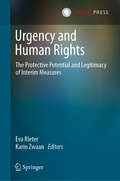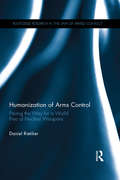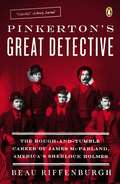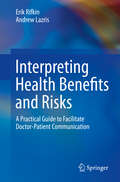- Table View
- List View
Cincinnati Police Department Traffic Stops
by Greg RidgewayIn 2002, the Cincinnati Police Department (CPD) joined with other agencies and organizations to improve police-community relations in the city. This report focuses on the analysis of racial disparities in traffic stops in Cincinnati. The authors find no evidence of racial differences between the stops of black and those of similarly situated nonblack drivers, but some issues can exacerbate the perception of racial bias.
Today's Police and Sheriff Recruits
by Greg Ridgeway Laura Werber CastanedaFor much of the past decade, police and sheriff's departments faced considerable challenges in attracting and retaining recruits. This volume summarizes a 2008-2009 survey fielded to recent police officer and sheriff's deputy recruits nationwide. The authors focus on how understanding modern recruits can help departments refine their recruitment practices and develop a workforce well suited to community-oriented policing.
Architectural Projects of Marco Frascari: The Pleasure of a Demonstration (Ashgate Studies in Architecture)
by Sam RidgwayMarco Frascari believed that architects should design thoughtful buildings capable of inspiring their inhabitants to have pleasurable and happy lives. A visionary Italian architect, academic and theorist, Frascari is best-known for his extraordinary texts, which explore the intellectual, theoretical and practical substance of the architectural discipline. As a student in Venice during the late 1960s, Frascari was taught and mentored by Carlo Scarpa. Later he moved to North America with his family, where he became a fulltime academic. Throughout his academic career, he continued to work on numerous architectural projects, including exhibitions, competition entries, and designs for approximately 35 buildings, a small number of which were built. As a means of (re)constructing the theatre of imaginative theory within which these buildings were created, Sam Ridgway draws on a wide selection of Frascari’s texts, including his richly poetic book Monsters of Architecture, to explore the themes of representation, demonstration, and anthropomorphism. Three of Frascari’s delightful buildings are then brought to light and interpreted, revealing a sophisticated and interwoven relationship between texts and buildings.
Criminal That I Am
by Jennifer RidhaA candid memoir from a talented young lawyer who becomes romantically entangled with the convicted drug felon she represents--Cameron Douglas, son of film actor Michael Douglas--and who soon makes the mistake of her life. Or does she?Criminal That I Am is a defense attorney's account of the criminal justice system as seen through the prism of a particular case: her own. Jennifer Ridha is enlisted to defend Cameron Douglas in a federal drug trafficking case while he is incarcerated in a maximum-security prison under difficult, even dangerous, conditions. As media scrutiny and the pressures of Cameron's case mount and as Jennifer becomes increasingly transfixed by her charismatic but troubled client, he asks her to do the unthinkable: commit a crime. In a decision inexplicable even to herself, guided only by her indignation and infatuation, she agrees. When her transgression is discovered, her criminal case begins, and her life as she knows it is over. A page-turning trip through professional self-destruction, tabloid scandal, and self-reckoning, Criminal That I Am is about the choices one woman makes: how they define her, how she lives with them, and, ultimately, how she is transformed by them. Recounted with brutal introspection and self-deprecating humor, this strange and twisted love story contemplates what we make of crime and punishment...and what it makes of us.
The Handbook of Forensic Learning Disabilities
by Tim Riding Caron Swann Bob SwannThis comprehensive and practical guide helps professionals and staff within hospitals change the way they collect record store and use clinical information about patients. It illustrates how clinical governance and evidence-based practice can be easily addressed by modernising clinical information practice to benefit patients and improve staff and service efficiency. As well as helping organisations define and establish improved systems this book is of continuing use for all healthcare professionals who make store and use patient records. 'High quality shared record keeping is recognised as being fundamentally important to good patient care. This book offers an excellent practical approach to addressing the changes needed in clinical record keeping to support improved patient care clinical governance better management information and the move towards electronic patient records. It brings together a strong clinical focus with the informatics principles needed to support a successful move to modern record keeping.' Yvonne Baker and Tricia Woodhead in the Foreword It will be a useful guide for clinicians and all other health professionals dealing with clinical information.
Key Facts Company Law (Key Facts)
by Ann RidleyKey Facts is the essential revision series for anyone studying law, including LLB, ILEX and post-graduate conversion courses.The Key Facts series provides the simplest and most effective way for you to absorb and retain the essential facts needed to pass your exams effortlessly.Key features include*Diagrams at the start of chapters to summarise the key points*Structured heading levels to allow for clear recall of the main facts*Charts and tables to break down more complex informationNew to these editions is an improved text design making the books easier read and the facts easier to retain.Key Facts books are supported by the website www.UnlockingTheLaw.co.uk where you will find extensive revision materials including MCQs and Key Q&As.
Community Quality-of-Life Indicators: Best Cases VIII (Community Quality-of-Life and Well-Being)
by Frank Ridzi Chantal Stevens Melanie DavernThis book offers critical insights into the thriving international field of community indicators, incorporating the experiences of government leaders, philanthropic professionals, community planners and a wide range of academic disciplines. It illuminates the important role of community indicators in diverse settings and the rationale for the development and implementation of these innovative projects. This book details many of the practical “how to” aspects of the field as well as lessons learned from implementing indicators in practice. The case studies included here also demonstrate how, using a variety of data applications, leaders of today are monitoring and measuring progress and communities are empowered to make sustainable improvements in their wellbeing. With examples related to the environment, economy, planning, community engagement and health, among others, this book epitomizes the constant innovation, collaborative partnerships and the consummate interdisciplinarity of the community indicators field of today.
Community Quality-of-Life Indicators: Best Cases IX (Community Quality-of-Life and Well-Being)
by Frank Ridzi Chantal Stevens Lyle WrayThis volume continues the tradition now established since 2006, of compiling excellent research into the practice and application of community indicators in a single source volume. It focuses on the theme of the Community Indicators Consortium 2020 Summit, as a significant venue for the advancement of the practice and theory of community indicators work. It covers the conference's theme of “community resilience”, which is the capacity of all of a community’s elements to survive, adapt, and grow no matter what kinds of chronic stresses and acute shocks they experience. In keeping with the practical, “best cases” emphasis of this book series, the editors incorporate a case-based approach to chapters discussing how specific indicators, indices or series of indicators can lead to better decisions and outcomes to help communities adapt and transform in the face of challenges, helping them prepare for both the expected and the unexpected to sustain and improve quality of life, including technology and open source approaches to data sharing and data-focussed collaboration; evolving approaches that use shared indicators to improve overall community well-being and quality of life; research related to community indicators and policy, application, research, and/or practice; and techniques and approaches to measure resilience. This volume is of interest to social scientists, management professionals, social workers and policy makers working on various aspects of community indicators of quality of life and well-being. Chapter “The Cost of Sea Level Rise for the Island Community of Vinalhaven, Maine: Spurring action through collaborative data analysis” is licensed under the terms of the Creative Commons Attribution 4.0 International License (http://creativecommons.org/licenses/by/4.0/). For further details see licence information in the chapters.
Catastrophe Ethics: How to Choose Well in a World of Tough Choices
by Travis RiederHow to live a morally decent life in the midst of today's constant, complex choices In a world of often confusing and terrifying global problems, how should we make choices in our everyday lives? Does anything on the individual level really make a difference? In Catastrophe Ethics, Travis Rieder tackles the moral philosophy puzzles that bedevil us. He explores vital ethical concepts from history and today and offers new ways to think about the &“right&” thing to do when the challenges we face are larger and more complex than ever before. Alongside a lively tour of traditional moral reasoning from thinkers like Plato, Mill, and Kant, Rieder posits new questions and exercises about the unique conundrums we now face, issues that can seem to transcend old-fashioned philosophical ideals. Should you drink water from a plastic bottle or not? Drive an electric car? When you learn about the horrors of factory farming, should you stop eating meat or other animal products? Do small commitments matter, or are we being manipulated into acting certain ways by corporations and media? These kinds of puzzles, Rieder explains, are everywhere now. And the tools most of us unthinkingly rely on to &“do the right thing&” are no longer enough. Principles like &“do no harm&” and &“respect others&” don&’t provide guidance in cases where our individual actions don&’t, by themselves, have any effect on others at all. We need new principles, with new justifications, in order to navigate this new world. In the face of consequential and complex crises, Rieder shares exactly how we can live a morally decent life. It&’s time to build our own catastrophe ethics.
Consumer Protection and Online Auction Platforms: Towards a Safer Legal Framework (Markets and the Law)
by Christine RiefaOnline auctions have undergone many transformations and continue to attract millions of customers worldwide. However these popular platforms remain understudied by legal scholars and misunderstood by legislators. This book explores the legal classification of online auction sites across a range of countries in Europe. Including empirical studies conducted on 28 online auction websites in the UK, the research focusses on the protection of consumers’ economic rights and highlights the shortcomings that the law struggles to control. With examinations into important developments, including the Consumer Rights Directive and the latest case law from the CJEU on the liability of intermediaries, Riefa anticipates changes in the law, and points out further changes that are needed to create a safe legal environment for consumers, whilst preserving the varied business model adopted by online auction sites. The study provides insights into how technical measures as well as a tighter legislative framework or enforcement pattern could provide consumers with better protection, in turn reinforcing trust, and ultimately benefiting the online auction platforms themselves.
Vulnerable Consumers and the Law: Consumer Protection and Access to Justice (Markets and the Law)
by Christine RiefaThis book charts the difficulties encountered by vulnerable consumers in their access to justice, through the contributions of prominent authors (academic, practitioners and consultants) in the field of consumer law and access to justice. It demonstrates that despite the development of ADR, access to justice is still severely lacking for the vulnerable consumer. The book highlights that a broad understanding of access to justice, which encompasses good regulation and its public enforcement, is an essential ingredient alongside access to the mechanisms of traditional private justice (courts and ADR) to protect the vulnerable consumer. Indeed, many of the difficulties are linked to normative obstacles and lack of access to justice is primarily a vulnerability in itself that can exacerbate existing ones. In addition, because it may contribute to ‘pushing’ already vulnerable consumers into social exclusion it is not simply about economic justice but also about social justice. The book shows that lack of access to justice is not irreversible nor is it necessarily linked to consumer apathy. New technologies could provide solutions. The book concludes with a plea for developing ‘inclusive’ justice systems with more emphasis on public enforcement alongside effective courts systems to offer the vulnerable with adequate means to defend themselves. This book will be suitable for both students and practitioners, and all those with an interest in the justice system.
At the Point of a Gun: Democratic Dreams and Armed Intervention
by David RieffWriting from the front lines of the hot wars of the post-Cold War world -- the Balkans, Africa, the Middle East, and most recently Afghanistan and Iraq for The New York Times Magazine -- David Rieff witnessed firsthand most of the armed interventions waged by the West or the United Nations in the name of human rights and democratization. His report is anything but reassuring. In this timely collection of his most illuminating articles, Rieff, one of our leading experts on the subject, reassesses some of his own judgments about the use of military might to solve the world's most pressing humanitarian problems and curb the world's cruelest human rights abusers, presenting what, taken as a whole, is a thoughtful and impassioned argument against armed intervention in all but the most extreme cases. At the Point of a Gun raises critical questions we cannot ignore in this era of gunboat democracy. When, if ever, is it appropriate to intervene militarily in the domestic affairs of other nations? Are human rights and humanitarian concerns legitimate reasons for intervening, or is the assault on sovereignty -- sovereignty that is as much an article of faith at the UN as it is in Washington -- a flag of convenience for the recolonization of part of the world? What role should the United Nations play in alleviating humanitarian crises? And, above all, can democracy be imposed through the barrel of an M16?Collected here for the first time, Rieff's essays draw a searing portrait of what happens when the grandiose schemes of policymakers and the grandiose ethical ambitions of human rights activists go horribly wrong in the field. Again and again, they ask the question: Do these moral ambitions of ours to protect people from massacre and want match either our means or our wisdom? Rieff's articles appear as they were written. Some, however, are accompanied by brief reconsiderations in which the author describes how and why his thinking has changed both as he has reflected on what it means, as in Iraq, to impose democracy by force, and as he has witnessed, firsthand, what that redemptive project actually looks like in practice. This is not an optimistic report. To the contrary, it is the chastened conclusion of a writer who was once one of the leading advocates of such interventions. But the questions Rieff raises are of the essence as the United States grapples with the harsh consequences of what it has wrought on the ground in Afghanistan and Iraq.
A Bed for the Night: Humanitarianism in Crisis
by David RieffTimely and controversial, A Bed for the Night reveals how humanitarian organizations trying to bring relief in an ever more violent and dangerous world are often betrayed and misused, and have increasingly lost sight of their purpose.Humanitarian relief workers, writes David Rieff, are the last of the just. And in the Bosnias, the Rwandas, and the Afghanistans of this world, humanitarianism remains the vocation of helping people when they most desperately need help, when they have lost or stand at risk of losing everything they have, including their lives.Although humanitarianism's accomplishments have been tremendous, including saving countless lives, the lesson of the past ten years of civil wars and ethnic cleansing is that it can do only so much to alleviate suffering. Aid workers have discovered that while trying to do good, their efforts may also cause harm.Drawing on firsthand reporting from hot war zones around the world -- Bosnia, Rwanda, Congo, Kosovo, Sudan, and most recently Afghanistan -- Rieff describes how the International Committee of the Red Cross, Doctors Without Borders, the International Rescue Committee, CARE, Oxfam, and other humanitarian organizations have moved from their founding principle of political neutrality, which gave them access to victims of wars, to encouraging the international community to take action to stop civil wars and ethnic cleansing. This advocacy has come at a high price. By calling for intervention -- whether by the United Nations or by "coalitions of the willing" -- humanitarian organizations risk being seen as taking sides in a conflict and thus jeopardizing their access to victims. And by overreaching, the humanitarian movement has allowed itself to be hijacked by the major powers, at times becoming a fig leaf for actions those powers wish to take for their own interests, or for the major powers' inaction. Rieff concludes that if humanitarian organizations are to do what they do best -- alleviate suffering -- they must reclaim their independence.Except for relief workers themselves, no one has looked at humanitarian action as seriously or as unflinchingly, or has had such unparalleled access to its inner workings, as Rieff, who has traveled and lived with aid workers over many years and four continents.A cogent, hard-hitting report from the front lines, A Bed for the Night shows what international aid organizations must do if they are to continue to care for the victims of humanitarian disasters.
A Bed for the Night
by David RieffTimely and controversial, A Bed for the Night reveals how humanitarian organizations trying to bring relief in an ever more violent and dangerous world are often betrayed and misused, and have increasingly lost sight of their purpose.Humanitarian relief workers, writes David Rieff, are the last of the just. And in the Bosnias, the Rwandas, and the Afghanistans of this world, humanitarianism remains the vocation of helping people when they most desperately need help, when they have lost or stand at risk of losing everything they have, including their lives.Although humanitarianism's accomplishments have been tremendous, including saving countless lives, the lesson of the past ten years of civil wars and ethnic cleansing is that it can do only so much to alleviate suffering. Aid workers have discovered that while trying to do good, their efforts may also cause harm.Drawing on firsthand reporting from hot war zones around the world -- Bosnia, Rwanda, Congo, Kosovo, Sudan, and most recently Afghanistan -- Rieff describes how the International Committee of the Red Cross, Doctors Without Borders, the International Rescue Committee, CARE, Oxfam, and other humanitarian organizations have moved from their founding principle of political neutrality, which gave them access to victims of wars, to encouraging the international community to take action to stop civil wars and ethnic cleansing. This advocacy has come at a high price. By calling for intervention -- whether by the United Nations or by "coalitions of the willing" -- humanitarian organizations risk being seen as taking sides in a conflict and thus jeopardizing their access to victims. And by overreaching, the humanitarian movement has allowed itself to be hijacked by the major powers, at times becoming a fig leaf for actions those powers wish to take for their own interests, or for the major powers' inaction. Rieff concludes that if humanitarian organizations are to do what they do best -- alleviate suffering -- they must reclaim their independence.Except for relief workers themselves, no one has looked at humanitarian action as seriously or as unflinchingly, or has had such unparalleled access to its inner workings, as Rieff, who has traveled and lived with aid workers over many years and four continents.A cogent, hard-hitting report from the front lines, A Bed for the Night shows what international aid organizations must do if they are to continue to care for the victims of humanitarian disasters.
In Praise of Forgetting: Historical Memory and Its Ironies
by David RieffThe conventional wisdom about historical memory is summed up in George Santayana's celebrated phrase, "Those who cannot remember the past are condemned to repeat it. " Today, the consensus that it is moral to remember, immoral to forget, is nearly absolute. And yet is this right? David Rieff, an independent writer who has reported on bloody conflicts in Africa, the Balkans, and Central Asia, insists that things are not so simple. He poses hard questions about whether remembrance ever truly has, or indeed ever could, "inoculate" the present against repeating the crimes of the past. He argues that rubbing raw historical wounds--whether self-inflicted or imposed by outside forces--neither remedies injustice nor confers reconciliation. If he is right, then historical memory is not a moral imperative but rather a moral option--sometimes called for, sometimes not. Collective remembrance can be toxic. Sometimes, Rieff concludes, it may be more moral to forget. Ranging widely across some of the defining conflicts of modern times--the Irish Troubles and the Easter Uprising of 1916, the white settlement of Australia, the American Civil War, the Balkan wars, the Holocaust, and 9/11--Rieff presents a pellucid examination of the uses and abuses of historical memory. His contentious, brilliant, and elegant essay is an indispensable work of moral philosophy.
The Crisis of the Officer Class: The Decline of the Tragic Sensibility (Sacred Order/Social Order #2)
by Philip Rieff<p>Philip Rieff earned recognition as one of the most profound social theorists of culture and authority of the twentieth century. Through such works as Freud: The Mind of the Moralist and The Triumph of the Therapeutic, he proved himself an incisive interpreter of Freud and his legacy. His work now culminates with the long-awaited trilogy, Sacred Order/Social Order, a three-volume work on social theory and contemporary culture. <p>In Volume 2, The Crisis of the Officer Class: The Death of the Tragic Sensibility, Phillip Rieff continues his assault against the deathworks of our modern age. Invoking his theory developed in Volume 1, he develops his critique of our current culture as distinguishable only by its rejection of any and all visions of sacred order.</p>
Verkehrsmanagementzentralen für Autobahnen: Aktuelle Entwicklungen aus Deutschland, Österreich und der Schweiz
by Gerd Riegelhuth Michael SandrockDas Buch zeigt anhand ausgewählter Entwicklungen aus Deutschland, Österreich und der Schweiz, wie moderne Verkehrsmanagementzentralen als Nukleus intelligenter Verkehrssysteme zur Sicherstellung einer bedarfsgerechten Mobilität beitragen können. Dabei gilt es sich an Zielen wie Verkehrssicherheit, Umwelt- und Klimaschutz sowie Verkehrseffizienz zu orientieren. Wesentliches Element ist die Umsetzung von Verkehrsmanagementstrategien auf Autobahnen bei gleichzeitiger Interaktion mit dem regionalen Umfeld in Ballungsräumen mit seinen komplexen Strukturen durch die Aufgabenwahrnehmung bei unterschiedlichen Verkehrs- und Aufgabenträgern. Beispiele aus deutschen Bundesländern und deutschsprachigen Nachbarländern veranschaulichen die Entwicklungen und Lösungswege, um sicheres und planbares Reisen auch in Zukunft zu ermöglichen.
Quantico Rules
by Gene RiehlPuller Monk's job is to investigate the background of Judge Brenda Thompson, a presidential nominee to the Supreme Court and an African-American.
An Attorney's Guide to ERISA Disability Claims
by Scott RiemerAn Attorney's Guide to ERISA Disability Claims is an essential resource that gives you the specialized knowledge you need to thoroughly prepare ERISA disability claims through both the initial application process and the insurance company's appeal process. Disability insurers scrutinize claims for any shred of evidence to support a decision that the insured can still perform her occupation. Sometimes just a line or two in the doctor's treatment notes or a minute on a surveillance video is enough. In assessing an occupation's requirements, insurers routinely ignore significant demands, such as travel, long hours, high stress, and quick thinking. This comprehensive guide tells you how to anticipate and respond to these and similar (sometimes outrageous) insurer tactics. The surest way to resolve your client's ERISA disability claim favorably without litigation is to follow Scott Riemer's guidance. Prepare your client's application and appeal as though you expect litigation to be necessary. When insurers know you are ready for court, they are more likely to pay the claim and save litigation for someone else's client. If you do need to litigate, you will be ready.
Philosophies and Sociologies of Bioethics: Crossing the divides
by Hauke Riesch Nathan Emmerich Steven WainwrightThis book is an interdisciplinary contribution to bioethics, bringing together philosophers, sociologists and Science and Technology Studies researchers as a way of bridging the disciplinary divides that have opened up in the study of bioethics. Each discipline approaches the topic through its own lens providing either normative statements or empirical studies, and the distance between the disciplines is heightened not only by differences in approach, but also disagreements over the values, interpretations and problematics within bioethical research. In order to converse across these divides, this volume includes contributions from several disciplines. The volume examines the sociological issues faced by interdisciplinary research in bioethics, the role of expertise, moral generalisations, distributed agency, and the importance of examining what is not being talked about. Other contributions try to take an interdisciplinary look at a range of specific situations, fetal alcohol syndrome in the media, citizen science, electronic cigarettes and bioethical issues in human geography.
Perspectives on Theory of Controversies and the Ethics of Communication
by Dana Riesenfeld Giovanni ScarafileAssembling an unprecedented range of considered responses to the noted contributions to philosophy made by Marcelo Dascal, this collection comprises the work of his many friends, colleagues and former students. Beginning with a series of articles on Dascal's influential insights on philosophical controversy, this volume continues with explorations of Dascal's celebrated scholarship on Liebnitz, before moving on to papers dealing with his philosophy of language, including interpretations by Dresner and Herring on the phenomenon of emoticons. Taken as a whole, they provide a compelling commentary on Dascal's prolific and voluminous publications and include fresh perspectives on the theory of argumentation and the ethics of communication. The material collected here extends to political philosophy, such as Morris-Reich's paper exploring the ways in which German social scientists confront issues of antisemitism, the psychology of genius, and the origins of norms in society and culture. Much of the analysis is directly connected to, or influenced by, the philosophical themes, ideas and concepts developed throughout the years by Marcelo Dascal, while others have a looser connection to his work. All of them, however, attest to the remarkable and multifaceted philosophical persona of Marcelo Dascal, who is the guiding light of the rich conceptual dialogue running through this book.
Urgency and Human Rights: The Protective Potential and Legitimacy of Interim Measures
by Eva Rieter Karin ZwaanThis book deals with urgency and human rights. ‘Urgent’ is a word often used, in very different contexts. Yet together with a reference to human rights violations, it likely triggers images of people caught up in armed conflict, facing terror from either the state, gangs, paramilitaries, or terrorists. Or of people fleeing terror and facing walls, fences or seas, at risk of being returned to terror, or ignored, neglected, abused, deprived of access to justice and basic facilities, facing death, torture and cruel treatment. Here these both ongoing and expected violations are explored in the context of (quasi-)judicial proceedings as international tribunals and domestic courts are increasingly called upon to order interim measures or accelerate proceedings in such cases. This edited volume concerns the protective potential of interim measures in international human rights cases and the legitimacy of their use and discusses obstacles to their persuasive use, to clarify how their legitimacy and protective potential could be enhanced in the context of concrete legal cases. Examining this is especially pressing when courts and (quasi-)judicial bodies have used interim measures in response to requests by individuals and organisations in the context of issues that are unpopular with governments and/or controversial within society, which has led states to at times employ political pressure to limit their use. Urgency and human rights are discussed from the vantage point of various practitioners and scholars, with the aim of identifying how interim measures could be legitimate and protective and to single out obstacles to their implementation. Drawing from practices developed in various international and regional adjudicatory systems, the contributors provide their perspectives on the legitimacy and/or the protective potential of interim measures and other (quasi-)judicial proceedings in urgent human rights cases. There is considerable discussion about how interim measures can be legitimate and well-functioning tools to address urgent human rights cases. This book aims to contribute to the ongoing discussion in this respect. Dr. Eva Rieter is senior researcher and lecturer public international law and human rights law at the Centre for State and Law, Radboud University, Nijmegen, The Netherlands. Dr. Karin Zwaan is associate professor in the Department of Migration Law at the Centre for State and Law, Radboud University, Nijmegen, The Netherlands.
Humanization of Arms Control: Paving the Way for a World free of Nuclear Weapons (Routledge Research in the Law of Armed Conflict)
by Daniel RietikerDespite clear legal rules and political commitments, no significant progress has been made in nuclear disarmament for two decades. Moreover, not even the use of these weapons has been banned to date. New ideas and strategies are therefore necessary. The author explores an alternative approach to arms control focusing on the human dimension rather than on States’ security: "humanization" of arms control! The book explores the preparatory work on arms control treaties and in particular the role of civil society. It analyzes the positive experiences of the movements against chemical weapons, anti-personnel mines, and cluster munitions, as well as the recent conclusion of the Arms Trade Treaty. The author examines the question of whether civil society will be able to replicate the success strategies that have been used, in particular, in the field of anti-personnel mines (Ottawa Convention) and cluster munitions (Oslo Convention) in the nuclear weapons field. Is there any reason why the most destructive weapons should not be outlawed by a legally binding instrument? The book also explains the effects of weapons, especially nuclear weapons, on human beings, the environment, and global development, thereby focusing on vulnerable groups, such as indigenous peoples, women, and children. It takes a broad approach to human rights, including economic, social, and cultural rights. The author concludes that the use of nuclear weapons is illegal under international humanitarian and human rights law and, moreover, constitutes international crimes under the Rome Statute of the International Criminal Court. In his general conclusions, the author makes concrete proposals for the progress toward a world without nuclear weapons.
Pinkerton's Great Detective: The Rough-and-Tumble Career of James McParland, America's Sherlock Holmes
by Beau RiffenburghThe story of the legendary Pinkerton detective who took down the Molly Maguires and the Wild BunchThe operatives of the Pinkerton's National Detective Agency were renowned for their skills of subterfuge, infiltration, and investigation, none more so than James McParland.<P><P> So thrilling were McParland's cases that Sir Arthur Conan Doyle included the cunning detective in a story along with Sherlock Holmes.Riffenburgh digs deep into the recently released Pinkerton archives to present the first biography of McParland and the agency's cloak-and-dagger methods. Both action packed and meticulously researched, Pinkerton's Great Detective brings readers along on McParland's most challenging cases: from young McParland's infiltration of the murderous Molly Maguires gang in the case that launched his career to his hunt for the notorious Butch Cassidy and the Wild Bunch to his controversial investigation of the Western Federation of Mines in the assassination of Idaho's former governor.Filled with outlaws and criminals, detectives and lawmen, Pinkerton's Great Detective shines a light upon the celebrated secretive agency and its premier sleuth.
Interpreting Health Benefits and Risks
by Erik Rifkin Andrew LazrisThis timely guide to communication in patient-centered medicine argues for greater clarity in explaining health risks versus benefits of an array of screening tests, procedures, and drug regimens. It reviews the growing trend toward patients' involvement in their own care, particularly in terms of chronic conditions, and details approaches physicians can use to prepare patients (and themselves) for collaborative decision-making based on informed choices and clear, meaningful knowledge. Chapters apply this lens to a wide range of common interventions as contentious as estrogen replacement therapy and antibiotics, and as widely prescribed as the daily aspirin and the annual physical. With this goal in mind, the authors also introduce an innovative decision-making tool that translates risks and benefits into a clear graphic format for fewer chances of miscommunication or misunderstanding. Among the topics covered: Involving the patient in decision making. Towards a universal decision aid. BRCT: the Benefit/Risk Characterization Theater. Breast Cancer Screening--Mammograms. Prostate Cancer Screening. Colon cancer screening with colonoscopy. Screening for and treating dementia. Statins, cholesterol, and coronary heart disease. Physicians in family and internal medicine will find Interpreting Health Benefits and Risks: A Practical Guide to Facilitate Doctor- Patient Communication a valuable resource for communicating with patients and new possibilities for working toward their better health and health education. This book considers several common and important situations where faulty decision-making makes overtreatment a serious risk. Clear, fair, referenced, and useful information is provided. And a powerful intuitive technique is introduced which allows patient and doctor to talk as equals as they work together in the exam room. The authors emphasize that some patients who have been fully educated will still accept high risks of harm for a small chance of avoiding premature death. But as this book is accepted and its ideas and technique are extended, I feel sure that net harm to patients will be curtailed. And what is more, the integrity of the decision-making process will be improved. --Thomas Finucane, MD, Professor of Medicine, Division of Gerontology and Geriatric Medicine, The Johns Hopkins University School of Medicine
